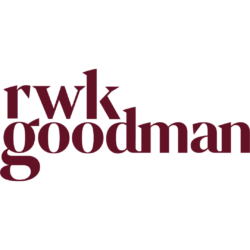
From 26 October 2024, all businesses will be placed under a new duty to take reasonable steps to prevent sexual harassment from happening in the workplace.
Under the new rules, businesses will be required to proactively prevent sexual harassment of their workers whilst they are at work, both by other workers and by third parties, such as by customers, contractors, suppliers and members of the public.
The Worker Protection (Amendment of Equality Act 2010) Act 2023 brings in this new duty for employers and with it coming into force on 26 October 2024, hospitality businesses have around a month to ensure they are fully prepared.
What is sexual harassment?
Sexual harassment is unwanted behaviour of a sexual nature towards another person that makes them feel intimidated, offended or humiliated. As long as the sexual conduct is unwanted, it does not matter whether the sexual conduct was intended to offend or intimidate the other person, what matters is that it had the effect of doing so. It goes without saying that sexual harassment is unlawful.
What is the new preventative duty?
The new rules impose a duty on employers to prevent sexual harassment in the workplace.
This means that hospitality businesses should not wait for an incident of sexual harassment to take place before taking steps to stop it from happening again in the future, they must anticipate the problems and risks that could occur in their places of work and act proactively to deal with these risks before they occur.
With there being penalties for failing to comply with the new duty, it is important that employers take their new obligation seriously and get things right.
What constitutes 'reasonable steps'?
Unfortunately, there is no written criteria or minimum standards a business must meet to comply with its duty to take ‘reasonable steps’ to prevent sexual harassment.
This is because what is “reasonable” depends on many different factors such as a business’ size, resources available, sector operated in and working environment. For example, what could be reasonable for a small independent coffee shop with a few staff and limited financial resources, would unlikely be reasonable for a large restaurant chain with numerous sites across the country, a large bank of staff and lots of resources available to it.
What steps should hospitality businesses take to prepare?
As mentioned, the new duty is an anticipatory and preventive duty and therefore hospitality businesses should act now before any incidents of sexual harassment occur at their places of work and before the new duty comes into force.
Steps hospitality businesses could consider taking are as follows:
- In depth risk assessment – this should consider the risk of sexual harassment happening in the business’ specific workplace(s), by both other staff members and by third parties, and identify ways to mitigate these risks. It is important to also consider risks that workers could face at any work-related events, such as social events, training sessions and industry events.
- Policies and procedures – all internal and external facing policies and procedures should be reviewed and amended to ensure that they take into account businesses’ new duty to prevent sexual harassment. Employers need to consider how these changes will be communicated to staff. With hospitality businesses often dealing with members of the public, employers should also consider how they communicate any external facing policies relating to preventing sexual harassment generally – businesses could consider putting notices in public areas of their premises or informing customers of such policies when they make a reservation or booking.
- Training – hospitality businesses should implement regular training with all staff tailored to their specific business, considering if further bespoke sessions need to be implemented with different groups of staff members. For example, in a night club setting, employers may consider that bar staff who work nighttime hours and have high levels of contact with customers need different training and guidance on sexual harassment to cleaners or maintenance staff who work during the day and have limited customer contact. As ever, careful records of all training given to staff should be retained by businesses to show what training has taken place, when and with whom.
- Open culture – businesses should confirm to staff that they promote and support an open culture, with staff being encouraged to report concerns relating to sexual harassment. Businesses should ensure that concerns can easily be reported and that workers feel comfortable and supported when doing so. It goes without saying that all complaints of sexual harassment should be investigated promptly and fairly, with swift action taken if necessary.
- Monitoring – hospitality businesses should continue to review and monitor the steps it has taken to prevent sexual harassment in the workplace. Risk assessments, policies and procedures, training and any other measures put into place should be regularly reviewed and updated as necessary. It is strongly recommended to keep clear records that businesses can use to show that the duty to prevent sexual harassment in the workplace is being complied with if necessary.
Failing to comply with the new duty
If a business has not taken reasonable steps to prevent the sexual harassment of their workers, the EHRC can take enforcement action. This can range from an investigation to preparation of an action plan to remedy any breaches or an injunction to prevent unlawful conduct.
As well as this, if an employee or worker brings a claim of sexual harassment at the Employment Tribunal and is successful, the Tribunal has the power to increase any compensation awarded by up to 25%, if it decided that the employer’s preventive duty has been breached. This of course can be a substantial increase.
Before this new duty comes into effect on 26 October 2024, there is a ample time for hospitality businesses to take action to ensure they are fully compliant with the new duty to prevent sexual harassment in the workplace.


